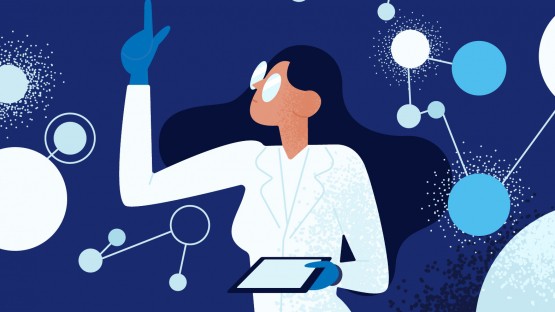
Lauren Nagel awarded Fellowship from the IAEA
The NERS PhD student received an inaugural Marie Skłodowska-Curie Fellowship.

The NERS PhD student received an inaugural Marie Skłodowska-Curie Fellowship.

The International Atomic Energy Agency (IAEA) has announced the first group of 100 female students from around the globe to receive a Marie Skłodowska-Curie Fellowship. Among them is U-M Nuclear Engineering and Radiological Sciences PhD Student Lauren Nagel. According to IAEA, out of over 550 applicants from more than 90 countries, the first 100 fellows represent geographic diversity, coming from 71 different countries.
“It is an incredible honor to be recognized by an international organization that strives to address so many crucial and pivotal challenges in our world, and with a fellowship honoring such an inspirational woman and her scientific contributions that I apply in my daily life,” said Lauren. “I am excited to be a part of a fellowship that is not only supporting the nuclear field but incredible women who are going to further pave the way for brilliant nuclear advances and solutions. I hope I do get to meet and interact with the other great women chosen.”
The 100 fellows focus their studies on a wide range of nuclear-related subjects, from nuclear engineering to nuclear medicine, and from nuclear security to non-proliferation and nuclear law.
Lauren was first introduced to nuclear technology while attending the University of Florida (UF) as an undergraduate. At UF Health she worked in the emergency medicine department, where she scribed patient encounters and traumas. She also volunteered in the Department of Radiology’s Vascular and Interventional division and interned with the Department of Neurosurgery. “I had different responsibilities in each position, but in each position I was exposed to many different nuclear techniques,” she said.
“Those experiences introduced me to several nuclear technologies that were saving people’s lives through diagnostics and treatments for cancer and other illnesses,” said Lauren. “That led me to pursue a degree in nuclear engineering.”
Lauren joined UF’s Nuclear Engineering Program in the Department of Material Science, where she worked with Professor Assel Aitkaliyeva. “Professor Aitkaliyeva is another brilliant and inspiring woman in our field; we studied fuels and structural materials for the next generation of nuclear reactors,” Lauren said. “She is and was an incredible mentor.”
While at UF, Lauren co-founded an organization called “Be That Girl,” which was a program designed to introduce high school girls to studies in STEM and assist them in their college applications and SAT studies. “I am so proud of all the girls I met in that program,” she said, “and I hope to possibly introduce something similar to the Ann Arbor region.”
This past fall semester was Lauren’s first semester at U-M, and next semester she will assist Professor Igor Jovanovic, Lauren’s advisor and Chair of the department’s Graduate Program, in teaching NERS 211 Introduction to Nuclear Engineering. “It’s an exciting and great opportunity to introduce other young women and students to the immense applications that nuclear technology has in our world,” she said.
“We are incredibly proud that IAEA has selected Lauren among the inaugural recipients of the prestigious Marie Skłodowska-Curie Fellowship,” Jovanovich said. “It goes a long way to affirm the support for future women leaders in our discipline. It also coherently adds to the commitment and efforts in our own program, which strives to create an environment that will attract an increasing number of ambitious and talented women to make significant and impactful contributions to nuclear science.”
After spending time studying in the field of nuclear engineering, Lauren said she recognized many diverse applications that came from nuclear technology, but through interactions with students and family members outside of the classroom she witnessed how misinformed and scared of nuclear technology and its applications others are.
“I hope to collaborate with the IAEA to not only protect nuclear technology for safe and peaceful usages, but to inspire others to innovate solutions with nuclear technology and cultivate an understanding of the safe and incredible applications it has,” Lauren said. She hopes to one day do this as an acting IAEA scientist and policy consultant.
“We are extremely pleased to see great interest in the programme,” said Mikhail Chudakov, Deputy Director General and Head of the Department of Nuclear Energy, which runs the fellowship program. “Enabling more women today to study and excel in nuclear engineering and operations, nuclear medicine, radiation protection and other nuclear related fields will lead to more women in leadership positions in the field tomorrow. This is the first step towards that goal.”